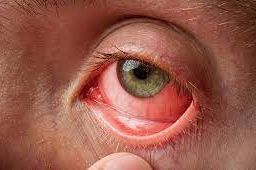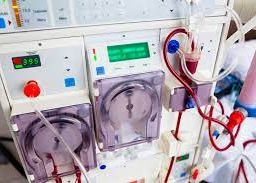
Nutrition for Thyroid Health: Essential Vitamins and Minerals
Welcome to Thyroid Day, a global initiative dedicated to raising awareness about thyroid health and empowering individuals with knowledge to take control of their well-being. Join us on this journey as we uncover the mysteries of the thyroid gland, explore common thyroid disorders, and discuss effective preventive measures. Let’s shine a spotlight on thyroid health and embark on a path to optimal wellness together!

Did you know that your thyroid plays a vital role in regulating numerous functions in your body, from metabolism and energy levels to mood and digestion? World Thyroid Day is a global initiative that aims to raise awareness about thyroid disorders, promote understanding, and encourage proactive steps toward thyroid health. It is celebrated annually on May 25th. It serves as a global awareness campaign to educate individuals about thyroid health, raise awareness about thyroid disorders, and promote the importance of early detection and treatment. On this day, various organizations and healthcare professionals around the world come together to organize events, share information, and engage in activities that promote thyroid health.
Overview of thyroid day
The Thyroid Unveiled:
The thyroid gland, located in the front of your neck just below the Adam’s apple, is a small but mighty organ with a significant impact on your body’s functioning. Its primary role is to produce thyroid hormones—triiodothyronine (T3) and thyroxine (T4)—which play a crucial role in regulating metabolism, energy production, growth, and development. By understanding the location, structure, and function of the thyroid gland, you gain a better appreciation for its importance in maintaining overall health and well-being.

Thyroid Disorders: Shedding Light on the Shadows:
Thyroid disorders encompass a range of conditions that affect the normal functioning of the thyroid gland. The most common disorders include hypothyroidism and hyperthyroidism. Hypothyroidism occurs when the thyroid gland doesn’t produce enough thyroid hormones, leading to symptoms like fatigue, weight gain, depression, and cold intolerance. On the other hand, hyperthyroidism results from an overactive thyroid gland, leading to symptoms such as weight loss, anxiety, rapid heartbeat, and heat intolerance.
Autoimmune conditions, such as Hashimoto’s thyroiditis and Graves’ disease, are also prevalent thyroid disorders. Hashimoto’s thyroiditis occurs when the body’s immune system mistakenly attacks the thyroid gland, leading to inflammation and gradual destruction of the gland, eventually causing hypothyroidism. Graves’ disease, on the other hand, is an autoimmune condition characterized by an overactive thyroid gland, resulting in hyperthyroidism. Understanding these disorders, their symptoms, and potential causes allows individuals to recognize the signs and seek appropriate medical attention for diagnosis and treatment.

Thyroid Testing and Diagnosis: Cracking the Code:
To diagnose thyroid disorders, healthcare professionals often utilize a combination of blood tests and physical examinations. The most common blood test is the measurement of thyroid-stimulating hormone (TSH) levels. TSH is produced by the pituitary gland and acts as a messenger to stimulate the thyroid gland to produce more thyroid hormones. Abnormal TSH levels can indicate an underlying thyroid disorder. Additional blood tests may include measuring levels of T3 and T4 to assess thyroid hormone production and function.
It is essential to understand the common medical terms associated with thyroid testing to have informed discussions with healthcare professionals. Some terms you may encounter include TSH, free T3 (FT3), free T4 (FT4), reverse T3 (rT3), and thyroid antibodies. Each of these tests provides valuable information about thyroid function, hormone levels, and potential autoimmune involvement.
Thyroid and Everyday Life: A Balancing Act:
The thyroid gland influences various aspects of everyday life due to its role in regulating metabolism and energy production. An imbalanced thyroid can lead to several symptoms that affect overall well-being. For example, in hypothyroidism, a sluggish metabolism can result in weight gain, fatigue, and difficulty concentrating. Individuals with hyperthyroidism may experience weight loss, irritability, restlessness, and difficulty sleeping due to an overactive metabolism.
Thyroid function also impacts mood regulation and cognitive function. Hypothyroidism has been associated with depression, brain fog, and memory difficulties, while hyperthyroidism can cause anxiety, mood swings, and difficulty concentrating.
Thyroid-Friendly Nutrition: Fueling Your Thyroid:
Proper nutrition plays a crucial role in supporting thyroid health. Certain nutrients are essential for the production and conversion of thyroid hormones. For example, iodine is a key component of thyroid hormones, and its deficiency can contribute to thyroid disorders. Good dietary sources of iodine include seaweed, iodized salt, fish, and dairy products. Additionally, selenium and zinc are important for thyroid hormone synthesis and metabolism. Foods rich in selenium include Brazil nuts, seafood, and eggs, while zinc can be found in oysters, beef, and pumpkin seeds.

A balanced diet that includes a variety of fruits, vegetables, whole grains, lean proteins, and healthy fats is beneficial for overall thyroid health. Avoiding excessive consumption of processed foods, refined sugars, and unhealthy fats can also support optimal thyroid function. Consulting with a registered dietitian or nutritionist can provide personalized guidance on thyroid-friendly nutrition and help create a meal plan that suits your individual needs.
Thyroid Empowerment: Taking Action:
Taking an active role in managing your thyroid health is empowering. Along with medical interventions, lifestyle modifications can significantly support thyroid function. Managing stress levels through techniques like meditation, deep breathing exercises, and regular exercise can positively impact the thyroid. Chronic stress can disrupt thyroid hormone production and worsen thyroid disorders, so stress reduction is essential.
Prioritizing quality sleep is another crucial aspect of thyroid health. Aim for 7-9 hours of uninterrupted sleep per night to support hormone regulation and overall well-being. Establish a relaxing bedtime routine, create a sleep-friendly environment, and limit exposure to electronic devices before bed.
Engaging in regular physical activity can also benefit thyroid health. Exercise promotes circulation, supports metabolism, and helps manage stress. Find activities you enjoy, such as walking, yoga, or dancing, and aim for at least 150 minutes of moderate-intensity exercise per week.
Thyroid Myths vs. Facts: Dispelling Misconceptions:
There are numerous myths and misconceptions surrounding thyroid health. It’s important to separate fact from fiction to make informed decisions and seek appropriate treatment. Some common myths include the belief that everyone with a thyroid disorder will exhibit the same symptoms or that natural remedies alone can cure thyroid disorders. Understanding the facts can help individuals navigate their thyroid health journey effectively and avoid potential pitfalls.

Consulting reliable sources, such as reputable medical websites, books written by experts, or trusted healthcare professionals, can help dispel myths and provide accurate information. Education and awareness play a crucial role in breaking down misconceptions surrounding thyroid disorders and ensuring individuals have the knowledge they need to make informed decisions about their health.
Supporting Thyroid Awareness: Spreading the Word:
Today presents an excellent opportunity to contribute to raising awareness about thyroid health. Engage in spreading the word through social media platforms, blogs, or community events. Share valuable resources, personal stories, and information about thyroid disorders and their impact on overall health. Encourage others to prioritize their thyroid health by sharing tips for self-care, lifestyle modifications, and seeking medical attention when necessary.
Participating in local or virtual events can also provide an opportunity to connect with others who have similar experiences. By sharing knowledge, resources, and support, we can create a network of thyroid health advocates and contribute to a world where thyroid health is understood, recognized, and valued.
Remember, raising awareness about thyroid disorders not only benefits individuals who may be struggling but also helps reduce the stigma associated with these conditions. Together, we can make a difference and empower others to take charge of their thyroid health.
Recognizing the potential effects of an imbalanced thyroid on daily life helps individuals understand the underlying causes of their symptoms and seek appropriate medical guidance. By addressing thyroid disorders through proper diagnosis and treatment, individuals can experience significant improvements in their energy levels, mood, and overall quality of life.
On this day, we unite to shine a spotlight on thyroid health, fostering understanding, and encouraging action. By unraveling the secrets of the thyroid gland, familiarizing ourselves with common disorders, and empowering ourselves with knowledge, we can take proactive steps toward optimal thyroid health. Let’s embark on this exciting journey together, supporting each other and creating a world where thyroid health is prioritized and celebrated.
Disclaimer: The information provided in this content is for general informational purposes only. It is not intended as medical or healthcare advice, diagnosis, or treatment. Always seek the advice of a qualified healthcare professional with any questions you may have regarding a medical condition or healthcare decisions.
















